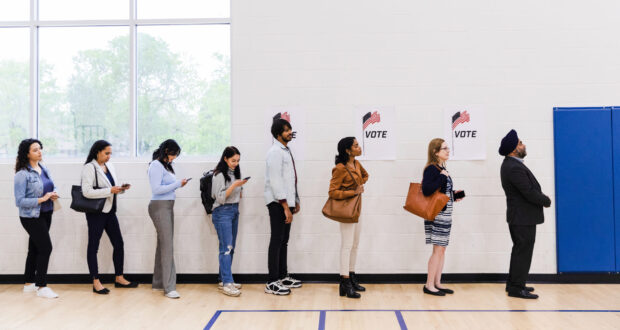A parliamentary committee on Wednesday afternoon announced an inquiry into civics education, participation and engagement in Australia.
The Joint Standing Committee on Electoral Matters will investigate how effective education about government operations and policymaking currently is, what approaches schools and other institutions take to deliver that education, and what accessibility gaps exist.
The Committee wants to especially hear from people with direct civics education knowledge, including students, teachers, young people, First Nations peoples, people from diverse backgrounds, civic and educational organisations, and people living in regional and remote areas.
Labor member for Jagajaga and Committee chair Kate Thwaites said every Australian needs basic civics and citizenship knowledge, particularly with the rise in social media mis- and disinformation.
"The Committee wants to hear Australians’ experiences of civics education, and what we can do better to support democratic engagement and participation," she said.
"So many young Australians are passionate about social and political issues, but they may not have access to relevant and reliable information about democratic and electoral processes."
Some educators have expressed concerns about a lack of civics education in curricula, which mostly appears through 'political history' Human Society and its Environment (HSIE) subjects.
University of Sydney education lecturer and HSIE curriculum coordinator Claire Golledge said the NSW HSIE curriculum is so tightly packed, she's not sure where more civics and citizenship learning could fit.
"[HSIE teachers] would really welcome a focus on voting and electoral education, but at the expense of what other learning?" she asked.
"Curriculum choice is really, really important. It's not possible to write a curriculum that works in every school in every context.
"And [NSW] already has a really full and prescriptive curriculum, so the answer is not to be more prescriptive."
Australian Electoral Commission (AEC) December data shows 90.6 per cent of 18-25 year olds are registered to vote, up from 81.3 per cent in March 2016.
Former teacher and chair of education at the University of Sydney Dr Murray Print said the Alice Springs (Mparntwe) Education Declaration calls for active citizens who make "informed decisions based on evidence", which could be delivered through civics as a curriculum priority in schools.
The inquiry Committee is seeking submissions to its terms of reference until May 24 2024.
Do you have an idea for a story?Email [email protected]
 Education Review The latest in education news
Education Review The latest in education news
